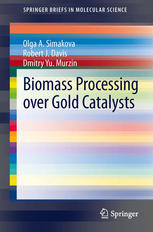

Most ebook files are in PDF format, so you can easily read them using various software such as Foxit Reader or directly on the Google Chrome browser.
Some ebook files are released by publishers in other formats such as .awz, .mobi, .epub, .fb2, etc. You may need to install specific software to read these formats on mobile/PC, such as Calibre.
Please read the tutorial at this link: https://ebookbell.com/faq
We offer FREE conversion to the popular formats you request; however, this may take some time. Therefore, right after payment, please email us, and we will try to provide the service as quickly as possible.
For some exceptional file formats or broken links (if any), please refrain from opening any disputes. Instead, email us first, and we will try to assist within a maximum of 6 hours.
EbookBell Team

5.0
28 reviewsThe book describes the valorization of biomass-derived compounds over gold catalysts.
Since biomass is a rich renewable feedstock for diverse platform molecules, including those currently derived from petroleum, the interest in various transformation routes has become intense. Catalytic conversion of biomass is one of the main approaches to improving the economic viability of biorefineries. In addition, Gold catalysts were found to have outstanding activity and selectivity in many key reactions.
This book collects information about transformations of the most promising and important compounds derived from cellulose, hemicelluloses, and woody biomass extractives. Since gold catalysts possess high stability under oxidative conditions, selective oxidation reactions were discussed more thoroughly than other critical reactions such as partial hydrogenation, acetalization, and isomerization.
The influence of reaction conditions, the role of the catalyst, and the advantages and disadvantages of using gold are presented for all of the reactions mentioned above.
This book provides an overview of the recent research results focusing on application of gold catalysts for synthesis of valuable chemicals using renewable feedstocks.